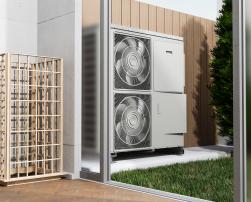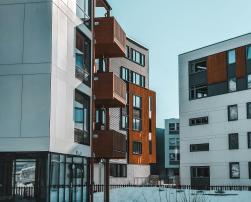
Researchers at the University of Sydney developed SAMBA, a system to monitor indoor environmental quality for improved sustainability and occupant comfort.

Researchers at the University of Sydney developed SAMBA, a system to monitor indoor environmental quality for improved sustainability and occupant comfort.

The DOMUS program supports residential energy rehabilitation with tailored services, leveraging local expertise, digital tools, and diverse funding to promote sustainable building decarbonisation.

McKinsey's report stresses the need to scale up heat pump technology, addressing challenges in cold regions, to decarbonize buildings and meet climate goals by 2050 through innovation, efficiency, and alternative heating solutions.

This 2024 semi-detached Passive House in Évora, Portugal, features energy-efficient design, including solar panels, heat recovery ventilation, and a thermosiphonic system, with a focus on low heating demand and renewable energy generation.

Hauts-de-France Pass Renovation supports homeowners and municipalities with energy-efficient home renovations by providing integrated technical and financial services, including consultations, project management, low-interest loans, and post-renovation support.

This review examines 82 studies on multi-objective optimisation in low-energy buildings, focusing on energy, thermal comfort, and air quality, highlighting key trends, methods, and future research opportunities, particularly with AI advancements.

La seconda tappa del REbuild Tour 2024/2025, svoltasi a Roma, ha sottolineato l'importanza della sostenibilità nel settore immobiliare, evidenziando la necessità di metriche affidabili e soluzioni per migliorare la vivibilità e la funzionalità degli ambienti urbani.

Energy House Labs at University of Salford (Manchester) conducted key research on heating systems, fabric retrofitting, and energy efficiency, with findings shared through studies, collaborations, and media appearances, highlighting sustainable solutions for reducing carbon, improving home heating, and addressing the challenges of rising energy costs and fuel poverty.

The building sector drives 40% of EU energy use and 36% of emissions, with green financing tools like sustainable loans, green bonds, EPCs, PPPs, and EU grants promoting energy-efficient construction and renovation.

The EU Building Policy Tracker highlights progress and gaps in decarbonising EU buildings by 2050, emphasising the need for clearer long-term targets, circularity, and stronger financial mechanisms to meet climate goals.